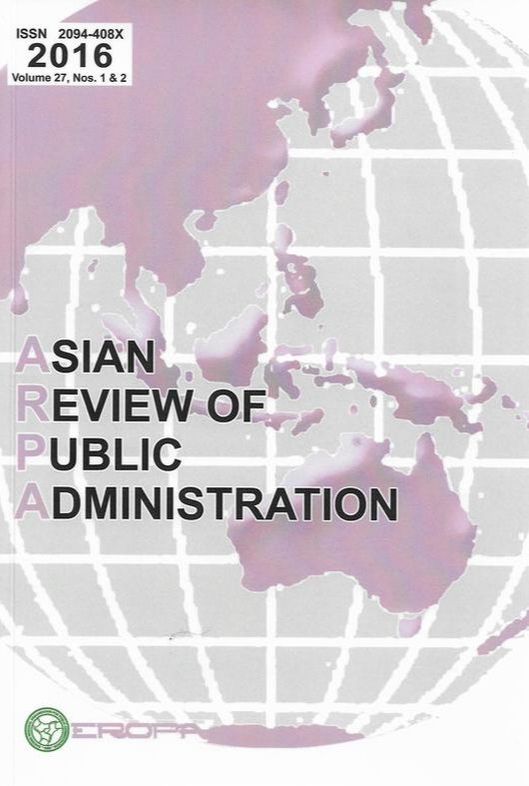- Home
- About
-
Publications
- Public Administration News
-
ARPA
>
- ARPA Scope and Objectives
- ARPA Editorial Board
- ARPA Call for Papers
- Submit Article
-
ARPA Open Access
>
- India (2020-2023, Vol. 31, Nos. 1&2, pg. 4-22)
- Nepal (2020-2023, Vol. 31, Nos. 1&2, pg. 23-46)
- Vietnam (2020-2023, Vol. 31, Nos. 1&2, pg. 47-67)
- China (2020-2023, Vol. 31, Nos. 1&2, pg. 68-79)
- South Korea (2020-2023, Vol. 31, Nos. 1&2, pg. 80-99)
- Bangladesh (2020-2023, Vol. 31, Nos. 1&2, pg. 100-119)
- USA (2020-2023, Vol. 31, Nos. 1&2, pg. 120-141)
- Abstracts >
- Publication Ethics and Malpractice Statement
- Notes for Contributors
- Journal Indexing
- EROPA Bulletin >
- Resources >
- Membership
-
Conferences
-
Activities
- #TAG Dialogue
- Contact Us
- Home
- About
-
Publications
- Public Administration News
-
ARPA
>
- ARPA Scope and Objectives
- ARPA Editorial Board
- ARPA Call for Papers
- Submit Article
-
ARPA Open Access
>
- India (2020-2023, Vol. 31, Nos. 1&2, pg. 4-22)
- Nepal (2020-2023, Vol. 31, Nos. 1&2, pg. 23-46)
- Vietnam (2020-2023, Vol. 31, Nos. 1&2, pg. 47-67)
- China (2020-2023, Vol. 31, Nos. 1&2, pg. 68-79)
- South Korea (2020-2023, Vol. 31, Nos. 1&2, pg. 80-99)
- Bangladesh (2020-2023, Vol. 31, Nos. 1&2, pg. 100-119)
- USA (2020-2023, Vol. 31, Nos. 1&2, pg. 120-141)
- Abstracts >
- Publication Ethics and Malpractice Statement
- Notes for Contributors
- Journal Indexing
- EROPA Bulletin >
- Resources >
- Membership
-
Conferences
-
Activities
- #TAG Dialogue
- Contact Us


 RSS Feed
RSS Feed